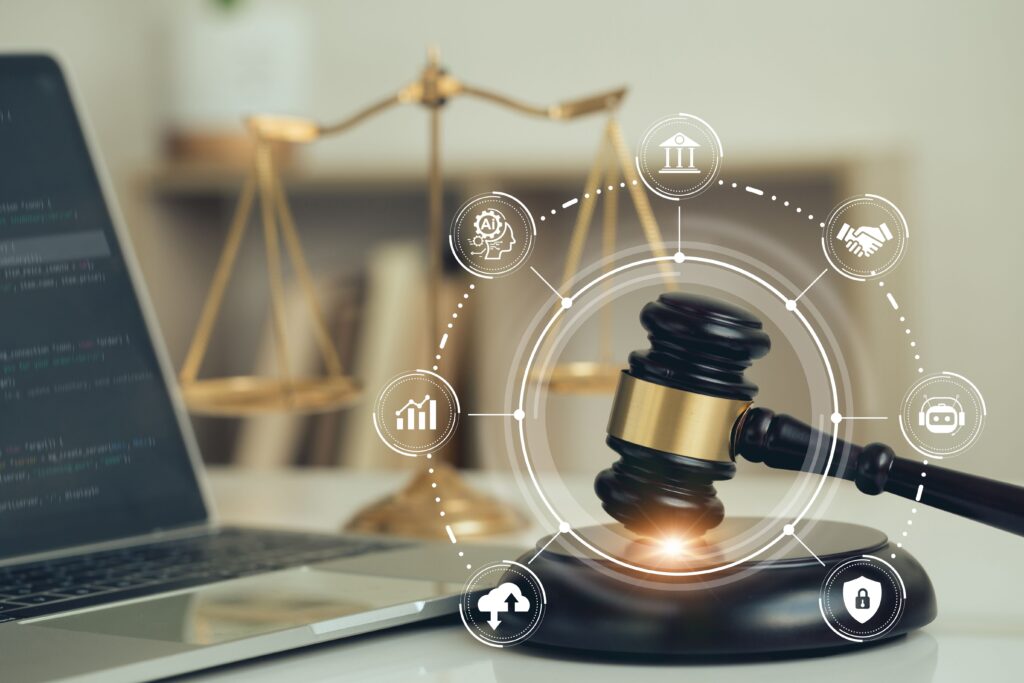In the competitive landscape of legal services, trust is no longer built solely on expertise or reputation. Today, clients demand that law firms embody digital fortresses — secure, tech-savvy, and adaptable to modern challenges. The 2025 Integris Report: Law Firms, Cybersecurity and AI: What Clients Really Think underscores an undeniable truth: firms that fail to embrace technology and cybersecurity risk losing more than data. They risk their clients, reputation, and revenue.
Trust Redefined: Cybersecurity as a Mandate
In an era of increasing cybersecurity threats, clients are prioritizing security as much as legal prowess. According to the Integris report:
- According to the report from Integris, 52% of clients are concerned about cybersecurity breaches, with 8% having experienced breaches through their law firm.
- Nearly 40% would consider firing a firm after a breach, and 37% would warn others about the incident.
Trust, once rooted in personal interactions, is now deeply tied to how well firms safeguard client data. In fact, 36% of clients expect proactive communication about a firm’s cybersecurity measures, and 37% are willing to pay premium fees for firms that demonstrate robust digital defenses.
The Cost of Outdated Technology
The legal profession has long struggled with outdated processes, but in today’s fast-paced world, inefficiency is no longer tolerable. The Integris report reveals that:
- 29% of clients experienced delays due to outdated technology, including lost documents and slow responses.
- 66% prefer working with firms that use modern tools, and 69% find secure document-sharing portals extremely important.
Traditional communication methods, such as unsecured emails, are becoming deal-breakers. Clients expect seamless, secure interactions and cutting-edge solutions.
AI in Legal Services: Opportunity Meets Caution
Generative AI, including tools like ChatGPT, offers enormous potential for efficiency in legal services. However, clients remain cautious:
- 81% are concerned about AI mishandling sensitive information.
- 70% express unease about firms relying heavily on AI without sufficient oversight.
While AI can enhance processes like research and drafting, firms must reassure clients that human expertise remains central. Transparency about how AI is used — and rigorous oversight — are critical to maintaining client confidence.
The Competitive Edge of IT Investment
For forward-thinking firms, technology investment is more than a necessity — it’s a competitive advantage. The Integris report shows:
- 37% of clients are willing to pay more for firms that market strong cybersecurity practices.
- 41% would choose firms with cutting-edge technology, even without premium fees.
Highlighting certifications, partnerships, and technological capabilities can differentiate firms in a saturated market.
Strategies for Law Firms
To remain competitive and client-focused, law firms should take actionable steps to integrate technology and cybersecurity into their core offerings:
- Showcase Cybersecurity: Promote third-party certifications, audits, and proactive updates on data protection efforts.
- Adopt Secure Communication Tools: Replace outdated methods with secure client portals that streamline document sharing and enhance trust.
- Embrace AI with Transparency: Clearly communicate AI policies, ensuring that human oversight remains a cornerstone of client service.
- View IT as a Strategic Investment: Regularly upgrade technology to improve efficiency and client satisfaction.
Digital Trust is Non-Negotiable
The 2025 Integris Report reveals that the hidden costs of neglecting technology — lost clients, diminished trust, and missed revenue opportunities — are too high for law firms to ignore. By prioritizing IT investment, embracing transparency, and leveraging cybersecurity as a client-facing asset, firms can turn potential vulnerabilities into competitive strengths.
“Law firms face a new reality: digital trust is as crucial as legal expertise,” said Greg Cooke, Vice President of legal practice at Integris. “Our findings show that clients not only want security and efficiency — they’re willing to pay for it. Firms that fail to prioritize cybersecurity and technology modernization risk losing clients and revenue.”
In a world where digital trust is the new currency, law firms have a choice: adapt to client expectations or face the costly consequences of falling behind. The future belongs to those who see technology not as an expense but as an opportunity to lead.












